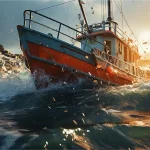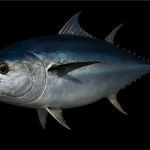Embarking on a fishing trip is not just about catching fish; it’s an opportunity to unwind, connect with nature, and rejuvenate your spirit. Whether you’re a seasoned angler or a novice, a well-planned fishing excursion can offer a stress-free and fulfilling experience. This guide will help ensure your fishing trips are as relaxing and enjoyable as possible.
1. Choose the Right Location
Selecting the appropriate fishing spot is crucial. Consider accessibility so that the location is easy to reach without strenuous effort. Look for spots with amenities such as restrooms, picnic areas, and shelters to enhance your comfort. The beauty of the location also plays a role; lakes surrounded by forests or calm rivers can provide the perfect backdrop for a peaceful outing. Finally, research fish populations in your desired location to align with your fishing interests. Local fishing forums, wildlife agencies, and mobile apps are excellent sources of information for identifying the best spots.
2. Plan According to the Season and Weather
Timing greatly influences your fishing experience. Certain fish species are more active during specific seasons, so planning around these cycles can improve your chances of success. Pay attention to weather forecasts and aim for calm, overcast days, which are often ideal for fishing and provide comfort. For coastal fishing, consider tides and lunar cycles, as these factors influence fish behavior. Reliable weather and fishing calendar apps can assist you in choosing the most favorable conditions for your trip.
3. Prepare Your Gear Thoughtfully
Having the right equipment can make the difference between a frustrating and a seamless trip. Select a rod and reel that suits the fish species you plan to target. Organize your tackle box with essential items like hooks, lines, lures, and sinkers. Bring comfort items such as a folding chair, sun hat, sunscreen, insect repellent, and weather-appropriate clothing. Do not forget safety essentials like a first-aid kit, life jacket if boating, and a flashlight. It is advisable to test your gear ahead of time to avoid any malfunctions or surprises during the trip.
4. Pack Nourishing Food and Hydration
A relaxing trip requires that you stay energized and hydrated. Pack easy-to-eat snacks such as sandwiches, fruits, nuts, and granola bars. Ensure you bring sufficient water to avoid dehydration. A cooler can help keep your food fresh and also store any fish you catch. Avoid heavy meals that can cause sluggishness or discomfort, and instead opt for light, nutritious foods that will sustain you throughout the day.
5. Embrace the Relaxation Aspect
Fishing should be as much about relaxation as it is about the catch. Practice mindfulness by focusing on the present moment, appreciating the sounds of nature, and enjoying the rhythm of casting and reeling. Cultivate patience and accept that catching fish is not guaranteed; the process itself is rewarding. Disconnect from electronic devices as much as possible to fully immerse yourself in the experience. This mindset can help you maximize the mental health benefits of your fishing trip.
6. Consider Guided Trips for Beginners
If you are new to fishing, a guided trip can be a great way to learn. Local guides offer valuable knowledge about fishing techniques and the best spots in the area. Many guided trips also include the provision of gear, which can save you from upfront investments. You can gain practical experience and pick up useful tips from seasoned anglers. When booking a guide, research reviews and recommendations to ensure you choose a reputable service.
7. Respect Nature and Practice Sustainability
Enjoying nature goes hand in hand with protecting it. Always clean up after yourself and dispose of any trash properly. Follow local regulations regarding licenses, seasons, and catch limits. When possible, practice catch and release to help maintain healthy fish populations. By being a responsible angler, you contribute to the conservation of wildlife and the preservation of natural habitats for future generations.
8. Create a Checklist Before Departure
A well-prepared checklist can prevent last-minute stress and forgotten items. Essential items include your fishing license, rod and reel, tackle box, bait or lures, comfortable clothing, food and water, first-aid kit, sun protection, insect repellent, and a map or GPS device. Review your list the night before your trip to ensure nothing important is left behind.
9. Explore New Locations
Variety adds excitement to fishing. Trying different fishing spots can offer new challenges, beautiful landscapes, and the opportunity to learn diverse fishing techniques. Whether you are exploring a new river, lake, or coastal area, research ahead of time to be properly prepared for different conditions. Exploring unfamiliar areas can turn a routine fishing outing into an adventurous escape.
10. Capture Memories
Documenting your trip allows you to relive the experience and share it with others. Bring a camera or use your phone to take photos of your catches, the scenery, and memorable moments with your companions. Keeping a journal can also help you record which techniques worked and what you learned for future trips. Sharing your photos and stories with friends, family, or on social media can inspire others and help you appreciate your adventures.
By thoughtfully planning your trip and focusing on the entire experience rather than just the outcome, you can ensure your fishing trips are a true escape from daily stress. The beauty of fishing lies not only in the thrill of the catch but also in the peaceful connection it fosters with nature. A stress-free fishing trip provides not just memories of fish caught, but a deeper sense of calm and satisfaction that stays with you long after you leave the water.



